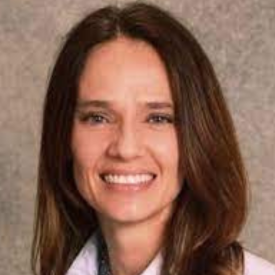Scientists are notorious for using big words and heavy jargon when speaking about their research, a habit that can alienate people or lead to misunderstanding. By simplifying their words and enhancing their storytelling, researchers can play a big role in reducing the spread of disinformation and feeding a growing hunger for science.
That was the focus of a panel discussion on “The Ethics of Science Communication” on Dec. 6 hosted by the Institute for Science & Policy. The annual virtual symposium, a project of the Denver Museum of Nature & Science, explored the ethics of how scientists communicate their findings to the public and policymakers.
In order to bridge the gap between the scientific community and public, scientists should simplify their messages by removing jargon, knowing their audience and using metaphors and analogies, said Aimee Bernard, PhD, an assistant professor in the Department of Immunology & Microbiology at the University of Colorado School of Medicine, who moderated one of the sessions.
Bernard, passionate about science education, runs regular science communication workshops on campus and created Think Like a Scientist, a community outreach science program in Aurora for elementary-aged school children, who are historically underrepresented groups (HUGs) in STEM.
The panel also included Heidi Steltzer, PhD, a biology professor at Fort Lewis College; Joe Wertz, a climate and environment editor at Colorado Public Radio (CPR); and Evan Thornburg, a health equity officer for the Department of Public Health in Philadelphia.
Here are a few takeaways.
Certain about uncertainty
The session opened with a discussion about scientific uncertainty. Science is dynamic. Hypotheses are regularly tweaked as new evidence is gathered, such as during the COVID-19 pandemic. As a result, researchers avoid using superlatives, such as “always” and “never.” However, society can misinterpret this as scientists being wishy-washy or uncertain.
“If you’ve ever cooked, you’re a chemist,” Aimee Bernard said she tells her Think Like a Scientist participants. “If you’ve ever played with water, you’re a physicist.”
“We live in a society that loves dichotomy,” Thornburg said. “Good, bad, big, small, up, down, right wrong — but the world doesn’t exist like that. A lot of things are subject to change.” Once people recognize this, it’s “easier to explain the science.”
Wertz said, “We really try to communicate the knowns and unknowns in plain language. We say what we know, why we know it and what the science is behind it.” Where applicable, we show where there is scientific debate, but also “make it clear when there is a major consensus.”
Everyone is a scientist
Science is often perceived as being too complicated to understand, but the panelists argued that everyone is capable of being a scientist and that we all use science every day, even if we don’t realize it.
“People are talking science all the time — we just don’t call it ‘science,’” said Steltzer. Science is not limited to experiments conducted at research institutions.
“If you’ve ever cooked, you’re a chemist,” Bernard said she tells her Think Like a Scientist! participants. “If you’ve ever played with water, you’re a physicist.”
Science doesn’t need to feel out of reach. It’s all about asking questions and finding explanations.
‘Growing hunger’ for science
Despite the many challenges of making science more accessible, the panelists were hopeful about the future of science communication.
“I’ve been covering science for more than a decade, and I have seen a growing hunger for information about science,” Wertz said. “I hope this continues to grow – that curiosity is an engine for all good things.”
Thornburg said, “I would love to see communities being more collaborative and being part of the conversation about science — not being talked at or to, but with other experts. I also really hope that folks who work in the sciences see more value in communication tools.”
Bernard agreed and noted that scientists should listen and open themselves up more to the community. “I hope this becomes second nature in science – training in and engaging in science communication with the public.”
Guest contributor: Brittany Truong is a freelance writer specializing in science and health.


.png)
.jpg)
